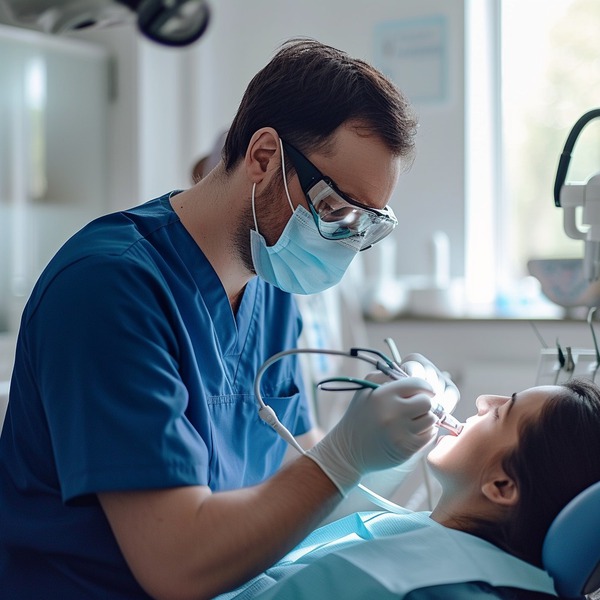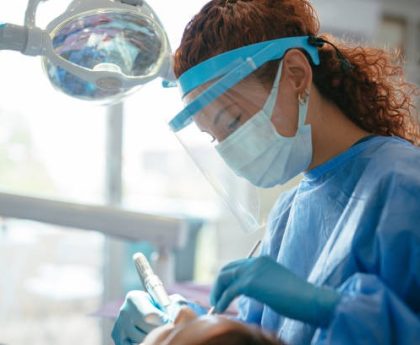Biocompatible dental solutions are revolutionizing oral healthcare by harmonizing dental treatments with the body’s natural processes. Their compatibility with human tissues minimizes potential adverse reactions and promotes quicker healing. These advanced materials, from dental implants to fillings, enhance patient comfort and lead to more sustainable and healthier outcomes. With an ever-growing emphasis on holistic health, biocompatible dental solutions are a critical innovation in modern dentistry.
Understanding the advantages of biocompatible dental materials can help you make informed decisions about your dental treatments. Here’s an overview of the critical benefits of biocompatible dental solutions.
1. Reduced Risk of Allergic Reactions
One of the primary benefits of biocompatible dental materials is the significantly reduced risk of causing allergic reactions. Traditional dental materials, such as certain metals and alloys, can trigger allergies or sensitivities in some patients, leading to discomfort, inflammation, and other adverse reactions. Biocompatible materials, however, are meticulously designed to be hypoallergenic, making them a safer and more reliable option for individuals with known sensitivities or those who prefer to minimize the risk of adverse reactions. Moreover, advances in biocompatible materials have paved the way for innovative treatments like biological tooth replacement, offering a natural and effective solution for tooth restoration without the complications associated with traditional methods.
2. Enhanced Patient Comfort
Biocompatible dental solutions often provide greater comfort both during and after treatment. These materials are typically more compatible with the body’s tissues, leading to less irritation and discomfort. For example, biocompatible filling materials can significantly reduce sensitivity in treated teeth, enhancing the overall patient experience by providing a more natural feel. This compatibility minimizes post-operative discomfort and accelerates healing, resulting in a smoother and more pleasant recovery. Patients often report less pain and fewer complications, leading to a higher satisfaction rate with their dental treatments.
3. Improved Aesthetic Results
Many biocompatible dental materials are crafted to mimic teeth’ natural appearance closely. This includes advanced ceramics and composite resins, which can be precisely color-matched to the patient’s natural teeth, ensuring a seamless and aesthetically pleasing result. The aesthetic benefits of biocompatible materials are particularly significant in cosmetic dentistry, where achieving a natural and attractive look is a top priority. With these biocompatible dental restorations in NJ, patients can enjoy a more confident smile that looks and feels authentic, enhancing their overall appearance and self-esteem.
4. Better Long-Term Health Outcomes
Using biocompatible materials in dental treatments can contribute to better long-term health outcomes. These materials are less likely to cause chronic inflammation or other adverse reactions in the body, which can help prevent complications and promote overall oral health over time. Additionally, biocompatible materials are often more durable and resistant to wear, reducing the need for frequent replacements or repairs. This longevity translates to fewer dental visits and lower long-term healthcare patient costs. Patients can support their long-term health and well-being by choosing biocompatible materials with safer, more reliable dental treatments.
5. Safer for Patients with Chronic Conditions
Patients with chronic health conditions, such as autoimmune diseases or chronic inflammatory disorders, may benefit significantly from biocompatible dental solutions. These patients are often more susceptible to adverse reactions from traditional dental materials, which can exacerbate their underlying conditions. Patients can minimize the risk of triggering their health issues by choosing biocompatible options and ensuring that their dental care aligns with their overall health needs. This approach allows patients to receive essential dental treatments without compromising their broader health, leading to better overall health outcomes and improved quality of life.
6. Environmentally Friendly Options
Biocompatible dental solutions are often more environmentally friendly compared to traditional materials. Many of these materials are derived from natural and sustainable sources and are free from harmful chemicals that can contribute to environmental pollution. By choosing biocompatible materials, dental practices support eco-friendly initiatives and help reduce the dental industry’s environmental footprint. This commitment to sustainability is increasingly important as healthcare providers and patients become more aware of the environmental impact of their choices. Biocompatible materials offer a way to prioritize both patient health and environmental responsibility.
7. Reduced Toxicity
Traditional dental materials, such as amalgam fillings, contain metals like mercury, which can pose toxicity concerns for some patients. Exposure to these toxic substances can lead to potential health risks, including neurological and renal complications. On the other hand, biocompatible materials are free from toxic substances and designed to be inert within the body. This significantly reduces the risk of toxic exposure and provides peace of mind for patients concerned about the long-term safety of their dental treatments. Using biocompatible materials ensures patients are not exposed to potentially harmful substances, promoting safer and healthier dental care practices.
8. Promotes Natural Healing
Biocompatible dental solutions often promote natural healing processes within the body. For instance, certain biocompatible materials used in bone grafts or dental implants encourage the natural regeneration of bone and tissue, leading to better integration and faster recovery times. These materials support the body’s innate healing mechanisms, resulting in more successful outcomes and a quicker return to normal activities. Patients can benefit from accelerated healing, reduced recovery time, and improved overall health, contributing to a higher quality of life and greater satisfaction with their dental treatments.
9. Compatibility with Holistic Health Approaches
For patients who follow holistic health practices, biocompatible dental solutions align well with their overall approach to wellness. These materials support the body’s natural balance and avoid introducing potentially harmful substances, making them suitable for individuals committed to natural and integrative health practices. By choosing biocompatible options, patients can ensure that their dental care is consistent with their broader health philosophy, promoting overall well-being and harmony. This holistic approach to dental care can enhance the patient’s overall health outcomes and support their commitment to a natural and balanced lifestyle.
10. Customizable for Individual Needs
Biocompatible dental solutions offer a remarkable level of customization, allowing dentists to tailor treatments to each patient’s unique needs. Whether selecting the suitable material for a filling, crown, or implant, biocompatible options can be adjusted to suit individual health concerns, aesthetic preferences, and functional requirements. For example, when considering a dental bridge without metal in New Jersey, patients benefit from biocompatible materials catering to aesthetic and health considerations. This customization ensures patients receive the most appropriate and effective care for their situation. By adapting treatments to meet individual needs, dentists can provide optimized outcomes and enhanced patient satisfaction, resulting in more personalized and successful dental care experiences.
Final Thoughts
Biocompatible dental solutions provide a range of benefits that make them an attractive option for many patients. From reducing the risk of allergic reactions to promoting natural healing, these materials offer safer and more effective dental care. As awareness of the importance of biocompatibility continues to grow, more patients seek these advanced solutions to ensure their dental treatments align with their overall health and well-being.





